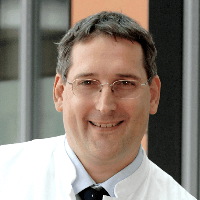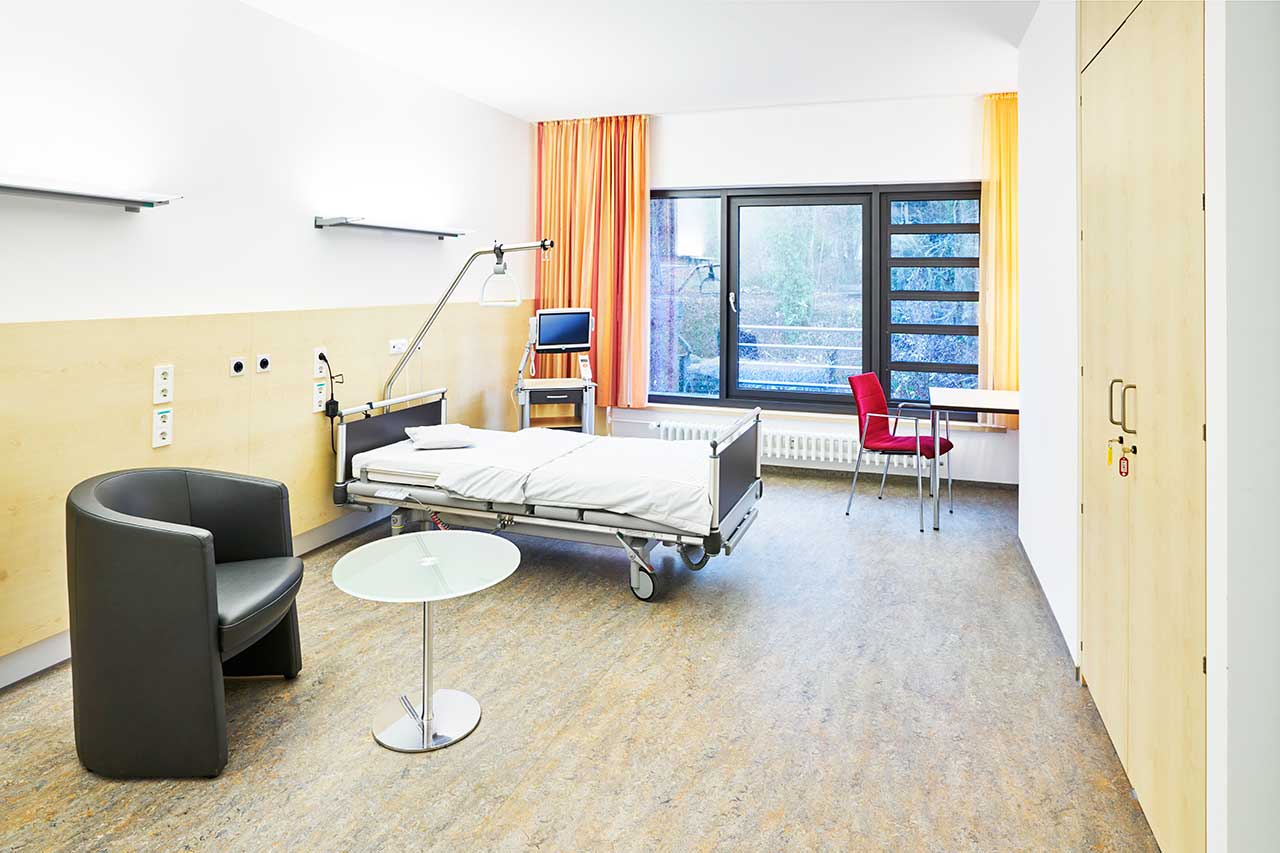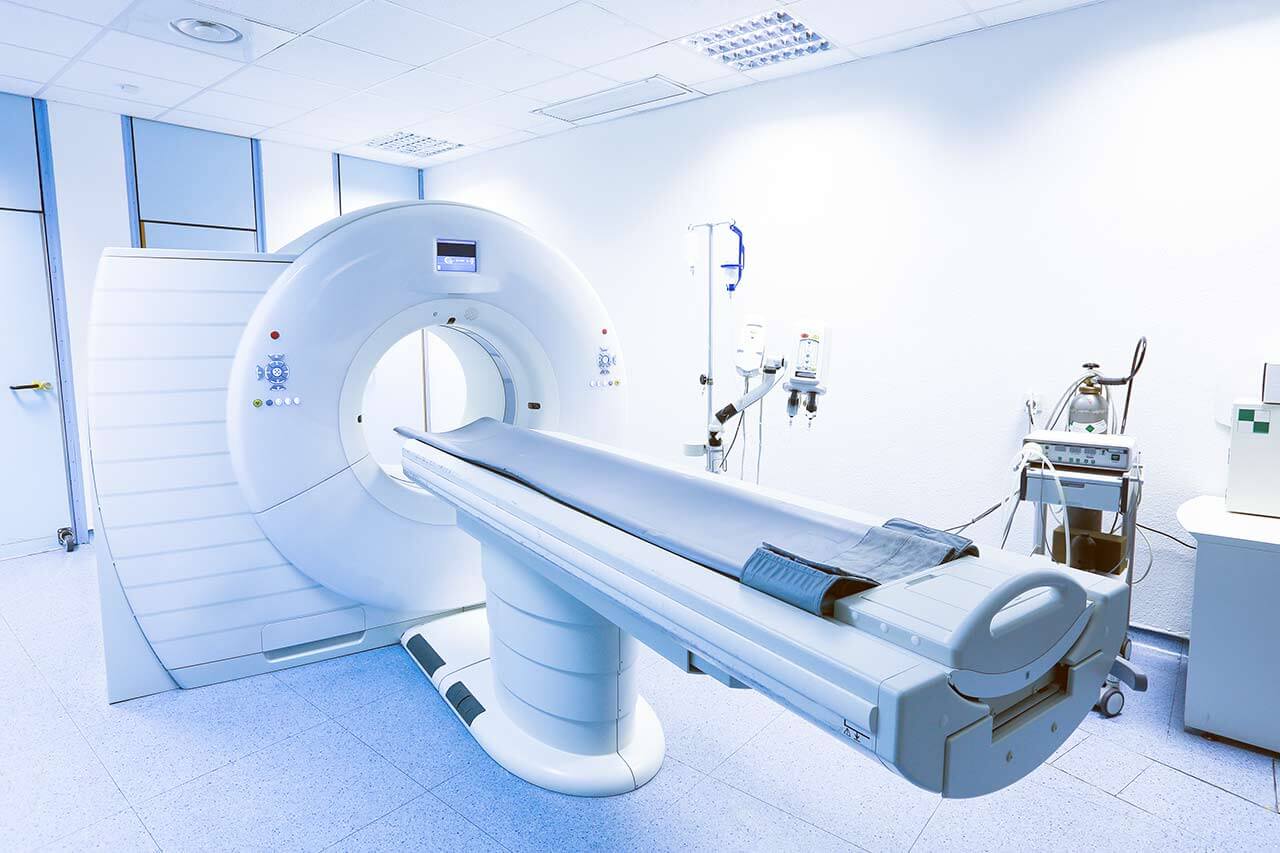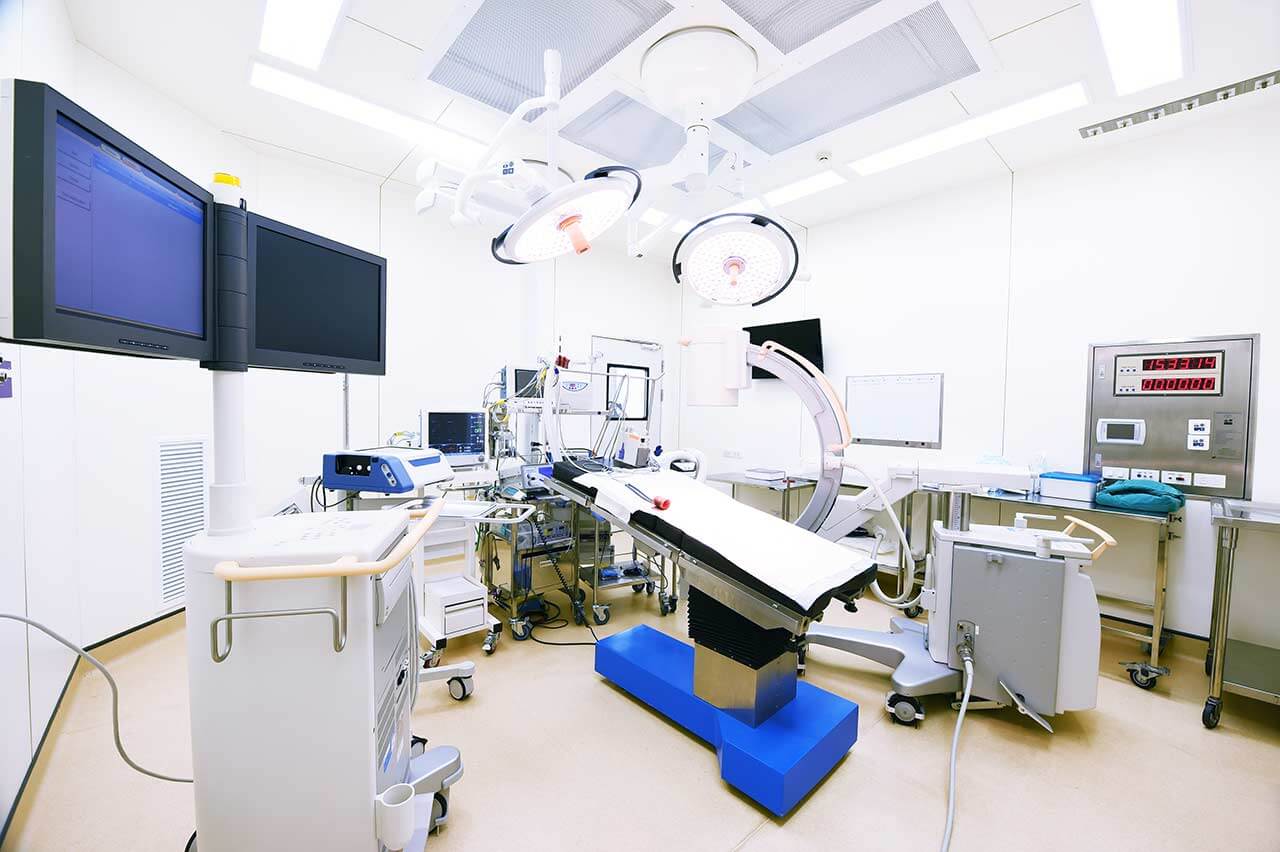
The program includes:
- Initial presentation in the clinic
- clinical history taking
- review of medical records
- physical examination
- laboratory tests:
- complete blood count
- biochemical analysis of blood
- inflammation indicators (CRP, ESR)
- indicators blood coagulation
- TSH-basal
- blood gas analysis
- antinuclear antibodies (ANA)
- rheumatoid factor titers (RF)
- chest x-ray examination
- bronchography
- measurement of arterial blood pressure
- electrocardiogram (ECG)
- echocardiography (ECHO)
- high-resolution computed tomography (HR-CT)
- collected three sputum samples
- pulmonary function test
- bronchoscopy with biopsy
- histological and microbiological examination
- bronchial lavage
- consultation of related specialists
- symptomatic specific treatment
- the cost of essential medicines and materials
- nursing services
- control examinations
- full hospital accommodation
- developing of further guidance
Required documents
- Medical records
- Chest X-ray, MRI/CT scan (if available)
Service
You may also book:
 BookingHealth Price from:
BookingHealth Price from:
About the department
The Department of Gastroenterology, Hepatology, Pulmonology, Endocrinology and Infectology at the University Hospital Erlangen offers the full range of diagnostic and therapeutic services for patients with diseases of the gastrointestinal tract, liver, lungs and endocrine glands. The department also provides medical care for patients with infectious pathologies. The treatment is provided both on an inpatient and outpatient basis. The department also has a modern Intensive Care Unit and an Emergency Service. Modern equipment for endoscopy, ultrasound examinations, in-house laboratory for endocrinological diagnostics and other capabilities of the department guarantee an accurate diagnosis, which is the key to successful treatment. The department's therapeutic options include drug therapy, diet therapy for diseases of the digestive tract, endoscopic procedures and other types of therapy. Each patient receives an individual treatment regimen, thanks to which the department's doctors manage to effectively restore the health of patients and provide them with a decent quality of life. The Chief Physician of the department is Prof. Dr. med. Markus Neurath.
The department's primary focus is gastroenterology. Doctors have in their arsenal many endoscopic procedures carried out for both diagnostic and therapeutic purposes. The outstanding quality of services in this area is confirmed by certification in accordance with the criteria of the German Cancer Society and in accordance with DIN ISO 9001:2008. Of particular interest in the field of endoscopy is the early diagnostics of cancer, as well as the detection of inflammatory changes in the mucous membrane using high-resolution endoscopy and various marking (staining) methods. Precancerous conditions are treated with endoscopic minimally invasive techniques. The department offers all modern procedures, including endoscopic mucosal resection. The department's doctors also specialize in capsule endoscopy, for example, to detect the causes of bleeding in the small intestine.
The department's doctors often admit patients with diseases of the liver and biliary tract. The therapeutic process begins with a comprehensive examination, including laboratory and ultrasound techniques. With suspected liver fibrosis, acoustic radiation force impulse (ARFI) is also used. Of particular interest to the specialists in the field of hepatology is the treatment of hepatitis B and C, autoimmune or cholestatic liver disease, cirrhosis, alcoholic liver lesions, and genetic liver pathologies (for example, hemochromatosis, Wilson's disease). The department also has a unique experience in liver cancer treatment provided in interdisciplinary collaboration with doctors from the Departments of Surgery, Interventional Radiology and Nuclear Medicine. The patients suffering from liver cancer are offered all modern therapies, including surgical resection, radiofrequency ablation (RFA), transarterial chemoembolization (TACE), and selective internal radiation therapy (SIRT). The tasks of the department's doctors also include preparing patients for liver transplantation and follow-up care after surgery.
The department's range of services is not limited to the treatment of gastrointestinal and liver disease. The patients with diseases of the lungs and respiratory tract can also receive medical care here. The primary focus of the clinical activities of pulmonologists is the drug therapy of lung cancer. Specialists also provide the treatment of bronchial asthma and chronic obstructive pulmonary disease. The treatment involves the use of only reliable, effective methods that ensure excellent results.
In the field of endocrinology, patients are provided with all the diagnostic and therapeutic options for the treatment of hormonal imbalance and metabolic disorders. Special attention is paid to the treatment of neuroendocrine tumors and diabetes mellitus.
The treatment of infectious diseases in the department is distinguished with the quality certificate of the German Society of Infectious Diseases, which testifies to the impeccable quality of medical care for infectious diseases of any severity. To accommodate patients with infectious pathologies, the department has six special isolation rooms in the unit with standard rooms and eight special isolation rooms in the intensive care unit. In some cases, treatment can be provided on an outpatient basis. To fight infections, doctors use the very latest and highly effective medication.
The department's main clinical focuses include:
- Diagnostics and treatment of gastrointestinal diseases
- All modern endoscopic procedures (diagnostic and therapeutic)
- Ultrasound diagnostics
- Diagnostics and treatment of liver and biliary tract diseases, including liver cancer
- Diagnostics and treatment of diseases of the lungs and respiratory tract (main focus on the treatment of lung cancer, bronchial asthma and obstructive pulmonary disease)
- Diagnostics and treatment of hormonal imbalance and metabolic disorders, including diabetes mellitus and neuroendocrine tumors
- Diagnostics and treatment of infectious diseases
- Intensive care
- Severe infections, sepsis with and without multiple organ dysfunction syndrome
- Severe respiratory distress
- Exacerbations of COPD and bronchial asthma
- Weaning from mechanical ventilation
- Liver failure
- Gastrointestinal bleeding
- Severe metabolic and endocrine disorders
- Severe bleeding disorders
- Intoxication
- Invasive hemodynamic monitoring of the systemic and pulmonary circulation (pulmonary catheter), including continuous monitoring of cardiac output ("PiCCO")
- Differentiated invasive and non-invasive mechanical ventilation
- Extracorporeal membrane oxygenation and assisted procedures for maintaining lung function (ECMO, ECCO2-R)
- Emergency bronchoscopy at a hospital bed (24/7)
- Emergency endoscopy at the hospital bed (in collaboration with the Department of Endoscopy)
- Emergency ultrasound diagnostics at a hospital bed
- Continuous renal replacement therapy (hemodialysis, hemofiltration, etc.)
- Renal replacement therapy at a hospital bed (SLED / Genius®, HD)
- Liver replacement therapy at a hospital bed (MARS®)
- Other medical services
Curriculum vitae
Education and Professional Experience
- 10.1984 - 10.1990 Study of Human Medicine in the Phillips University of Marburg.
- 11.1990 - 04.1992 Intern, Department of Internal Medicine, University Hospital Mainz.
- 1990 Doctoral thesis defense with honors and Doctoral Degree, Johannes Gutenberg University Mainz. Subject: "Changes in the meniscus and cruciate ligament in rheumatoid arthritis. Light-optical, electron-microscopic and histochemical study of the knee cartilage and ligaments".
- Since 1992 Research Fellow, Department of Internal Medicine I, University Hospital Mainz.
- 1992 - 1995 German Research Foundation Scholarship (under the direction of Prof. Dr. med. Warren Strober), Section for Mucosal Immunology Research, National Institute of Health, Bethesda, USA.
- 1995 - 1997 Research Fellow, Department of Internal Medicine I, University Hospital Mainz.
- 1997 Board certification in Internal Medicine.
- 04.1998 Habilitation and the beginning of teaching activities (lectures), Senior Physician (Department of Ultrasound Diagnostics, Internal Medicine Station, Emergency Unit and Intensive Care Unit), as well as a Leading Consultant Doctor for Crohn's disease and colitis in the Department of Internal Medicine I.
- 1998 Examination for specialization in Gastroenterology.
- 1999 Seven months as a Visiting Professor at the Brigham Women's Hospital, Harvard Medical School, Boston, USA (funded by the Fulbright Society, Scholarship for Gifted Scientists).
- 05.2001 Acceptance of the proposal to hold the position of C3 Professor in Gastroenterology, Department of Internal Medicine I, University Hospital Mainz, Senior Physician (Emergency Unit, Transplant Section), as well as a Leading Consultant Doctor for Crohn's disease and colitis in Department of Internal Medicine I.
- Since 04.2003 Head of the Endoscopy Unit in the Department of Internal Medicine I.
- 10.2003 Study of Health Economics (contractual).
- 04.2004 Creation of a new program funded by the German Research Foundation – "Antigen-specific immunotherapy", Johannes Gutenberg University Mainz.
Prizes and Awards
- 2000 Theodor Frerich Prize.
- 2000 Tannhauser Prize of the German Society for Gastroenterology.
- 2005 Norbert Henning Prize at the University of Erlangen.
- 2006 Ernst Young Award.
- 2008 Research Prize of the United European Gastroenterological Federation.
Photo of the doctor: (c) Universitätsklinikum Erlangen
About hospital
According to the Focus magazine, University Hospital Erlangen ranks among the best medical facilities in Germany!
The hospital is one of the leading healthcare facilities in Bavaria and offers top-class medical care distinguished by the close intertwining of clinical activities with research and training of medical students. The hospital was founded in 1815 and today is proud of its rich traditions, numerous medical achievements and an excellent reputation not only in Germany, but also in the international arena. The hospital has 25 specialized departments, 7 institutes and 41 interdisciplinary centers, whose experts work tirelessly for the benefit of their patients.
The hospital has the status of a maximum care center, and therefore it represents almost all fields of modern medicine. Oncology, transplant medicine, and robot-assisted surgery are among the top priorities of the clinical activities of the medical complex. Oncology is represented by the Comprehensive Cancer Center Erlangen, which is one of 13 centers of excellence in Germany certified by the German Cancer Society. The university hospital has a high-tech center with high success rates for heart, liver, kidney, pancreas, cornea and bone marrow transplants. In addition, the hospital is a leader in the use of robot-assisted surgery. The medical facility has at its disposal innovative robotic technologies, in particular the da Vinci Surgical System, with the help of which surgeons perform many sparing interventions in various medical fields.
The medical team of the hospital consists of highly professional therapists, surgeons and nursing staff. The focus of their efforts is on the patient, his health and peace of mind, as well as comfort during treatment. The clinical practice of doctors is based on an individual approach to each case, which results in high treatment success rates. State-of-the-art technical equipment also plays an important role in the therapeutic process. The hospital is proud of the most advanced devices for imaging diagnostics (X-ray, ultrasound, CT, MRI, PET-CT, SPECT-CT, etc.), endoscopic examinations, laboratory tests, as well as specially equipped operating rooms for robot-assisted interventions, image-guided therapeutic manipulations, minimally invasive and classical surgeries of any complexity. Thus, the doctors of the university hospital have all the necessary resources to effectively treat the most severe pathologies and save lives.
The combination of high-tech equipment, experienced and highly qualified personnel, as well as strict adherence to the standards of modern medicine, form a solid foundation for the provision of the best medical care at the European level. An undeniable proof of the high prestige of the hospital is the constantly growing number of patients who come here from various regions of Germany and other countries of the world.
Photo: (с) depositphotos
Accommodation in hospital
Patients rooms
The patients of the University Hospital Erlangen live in comfortable rooms with light colors and modern design. Each patient room has an ensuite bathroom with shower and toilet. The furnishing of the patient room includes an automatically adjustable bed with an orthopedic mattress, a bedside table, a wardrobe, a table and chairs for receiving visitors, a TV, a radio and a telephone. Wi-Fi can be provided upon request. The use of a mobile phone is prohibited in many rooms of the hospital.
Patients can also live in enhanced-comfort rooms with a more sophisticated design. The enhanced-comfort rooms additionally include upholstered furniture, a minifridge and a safe.
Meals and Menus
The hospital offers healthy and tasty food distinguished by many awards, including the 1st place in the prestigious ESSEN PRO GESUNDHEIT competition of the Bavarian State Ministry of the Environment and Consumer Protection.
The patient and the accompanying person have three meals a day. Breakfast is served buffet style: scrambled eggs, boiled eggs, sausage, cheese, bread and buns with butter and jam, cereals, etc. There are three set menus for lunch and dinner to choose from: a classic menu featuring local cuisine dishes, a Mediterranean menu and a vegetarian menu.
If for some reason you do not eat all the foods, you will be offered an individual menu. Please inform the medical staff about your dietary preferences prior to the treatment.
The hospital also houses many cafeterias, which will delight with a wide range of delicious dishes and drinks.
Further details
Standard rooms include:
Religion
The hospital regularly hosts catholic and evangelical devine services. The services of representatives of other religions are available upon request.
Accompanying person
During an inpatient program, an accompanying person can stay with you in the patient room or in a hotel of your choice.
Hotel
During an outpatient program, you can stay in a hotel of your choice. The managers will help you choose the most suitable options.




